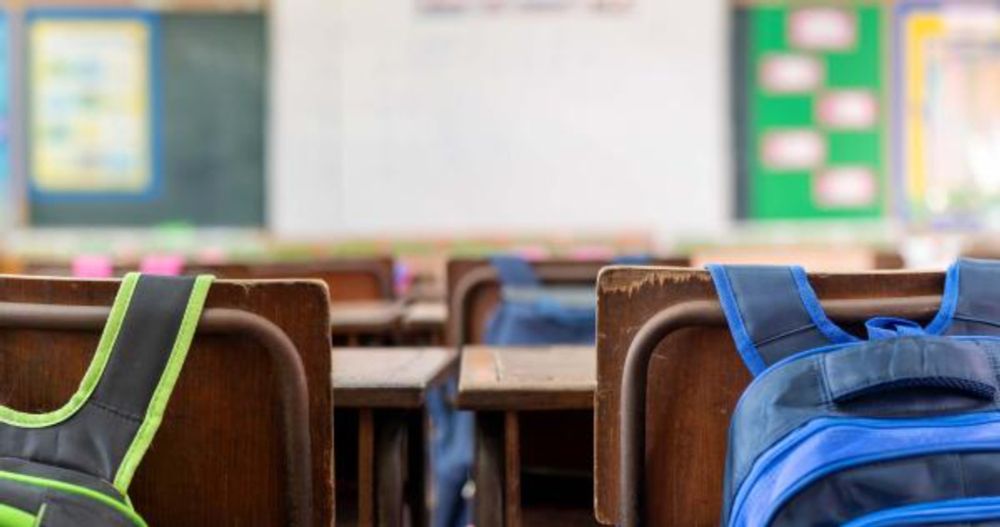
Research Fellow at IFS and EPI, independent consultant, posts about about school funding, education, inequalities and cycling
How does social housing design affect neighborhoods decades later? We study London gangs to show that postwar urban planning—specifically high-rise public housing construction—had lasting effects on gang formation
@cep-lse.bsky.social

Reposted by Sascha O. Becker, Luke Sibieta

How does social housing design affect neighborhoods decades later? We study London gangs to show that postwar urban planning—specifically high-rise public housing construction—had lasting effects on gang formation
@cep-lse.bsky.social
Under 16s here are those claiming CDLA. Many will have EHCPs, many won't


There is also increasing pass through from CDLA to PIP
Would be interesting to map this directly to NEETs
ifs.org.uk/publications...
I always say to people that the ideal @theifs.bsky.social work is rigorous enough to publish in top journals, and relevant enough to be on the front page. I think we've ticked that box here!
🏆 Find out more: ifs.org.uk/news/ifs-sur...
They have put so much time and thought into their evaluation of sure start and it’s multiple effects over time.
The quality and impact of their work reflects this. 👏
Reposted by Simon Burgess, Luke Sibieta, Peter Levell
🏆 Find out more: ifs.org.uk/news/ifs-sur...

I always say to people that the ideal @theifs.bsky.social work is rigorous enough to publish in top journals, and relevant enough to be on the front page. I think we've ticked that box here!
£6bn is 11% of mainstream school budgets, so little chance of closing the whole gap this way.
But we’ve already seen squeezes in mainstream budgets. Over half of the rise in total school funding since 2018 has gone on high needs
£6bn would be a 9% top up to the schools budget.
I’m sure this is DfEs preferred option
I suspect the chancellor would want to see clear plans to get spending under control before considering this.
d) restrict eligibility for EHCPs to higher cost needs. This makes more sense if you do a)-c)
a) Shift funding to expand ordinary provision in mainstream schools so it’s easier, earlier and closer to pupils
b) increase places in state-funded special schools to reduce reliance on expensive places in the private sector
…

Govt now has 3 options to close an expected £6bn funding gap in 2028
1. Slow the growth in SEND spending
2. Top up the schools budget
3. Reduce mainstream school budgets
🧵

Reposted by Luke Sibieta

From 2028, central gov't will fund all SEND provision from within departmental spending. Without reform or spending top-ups, that's a £6bn pressure on budgets that year.
@theifs.bsky.social #Budget2025

That is HUGE growth and about double what we expected
@theifs.bsky.social
Reposted by Luke Sibieta, Tim Leunig

@timleunig.bsky.social who has a nice example of why zero-rating things like food and children's clothing isn't a particularly effective way of supporting poorer households
www.ft.com/content/33d7...
Reposted by Luke Sibieta

We see relative declines at age 11 between 2013 and 2018, with not much change afterwards
We then see some small catch-up for most needs at age 16 from 2013 onwards. Note that the severe learning difficulties group is small and VERY heterogenous.

This could include a long-term specialist workforce plan, much better training for teachers on SEND needs, better partnerships with special schools and real accountability for outcomes [3/3]
ifs.org.uk/articles/eng...
The key question for government is whether it can deliver a smaller rise AND improve quality
We've written how the current EHCP-led funding model doesn't provide incentives to improve quality and can actively prevent it [2/3]

This is about £600m higher than previous forecasts quoted by the NAO
If delivered, current fiscal plans then imply real-terms cuts to mainstream school spending per pupil [1/3]


There are probably big differences within types of needs too, illustrating the diversity of need and challenge in providing support [6/6]

If this turns into more young adults on out of work benefits, this could generate big labour market and fiscal risks [5/6]

Many areas of London have high EHCP rates, but average CDLA claims
Some areas are really high on both measures (Knowsley: 7% with EHCPs, 16% on CDLA) [4/6]


Reposted by Christina Pagel
THREAD on @eduinlatimer.bsky.social, @lukesibieta.bsky.social and Darcey Snape's IFS Green Budget chapter, funded by @nuffieldfoundation.org:

I wanted to delve deeper into some of the key findings....[1/6]
Reposted by Luke Sibieta, Christina Pagel

THREAD on @eduinlatimer.bsky.social, @lukesibieta.bsky.social and Darcey Snape's IFS Green Budget chapter, funded by @nuffieldfoundation.org:
The case for removing this popular and rigorous option always seemed quite weak to me
qualifications.wales/news-views/f...

Spending is going to go up, the question is how to spend the money in ways that actually improve the system.


